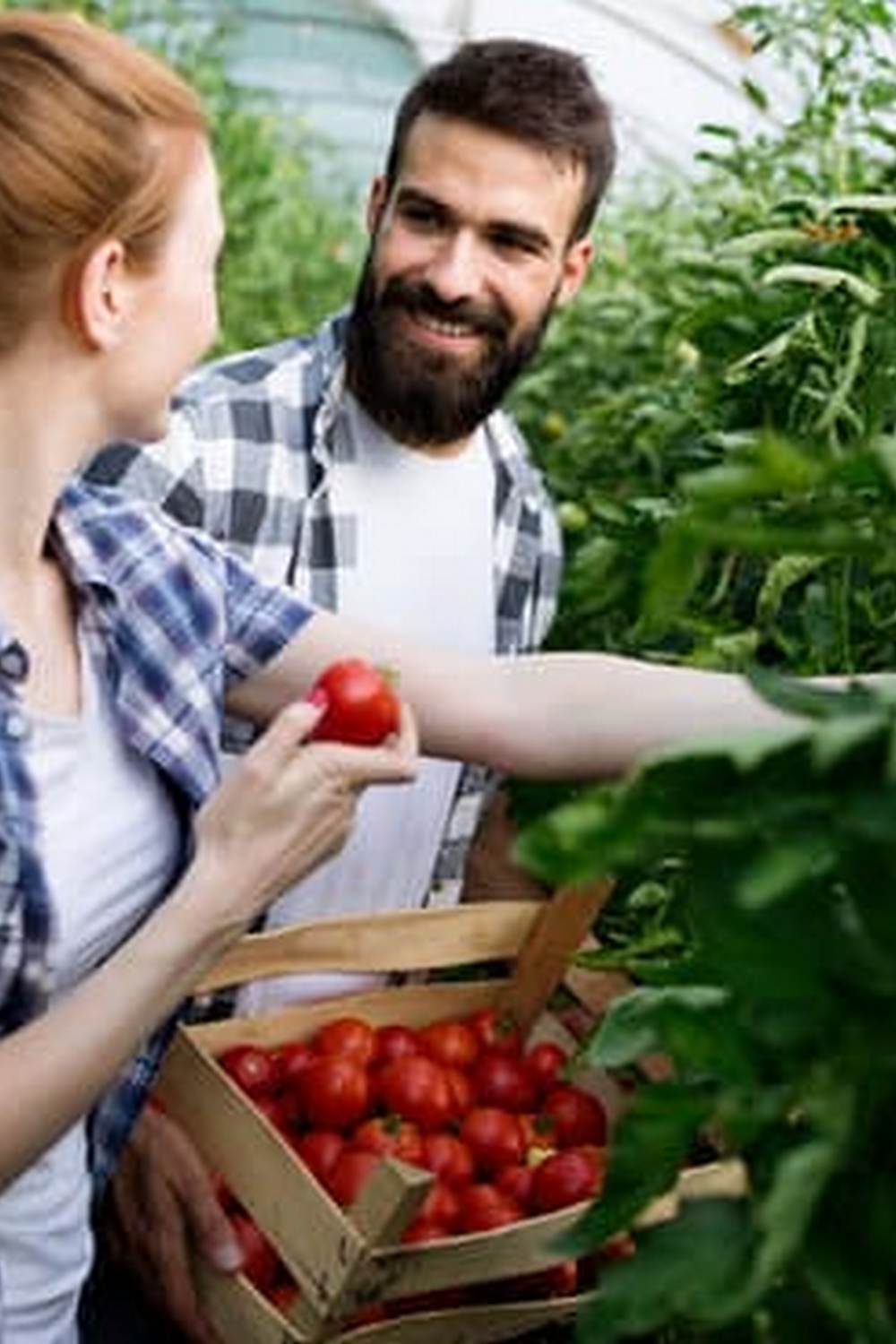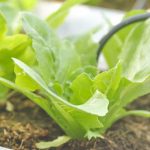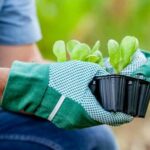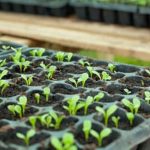Are you eager to start your own vegetable garden in Florida and produce an abundant harvest of fresh, delicious produce? Look no further.
If you’re searching for the best resources on vegetable gardening in Florida, you’ve come to the right place. Whether you’re a novice gardener looking to learn the ropes or a seasoned pro seeking to expand your knowledge, having a comprehensive book on vegetable gardening specifically tailored to the unique climate and soil of Florida is essential to your success.
Florida’s subtropical climate and diverse soil types create a distinct set of challenges and opportunities for vegetable gardeners. From battling humidity and intense sunshine to navigating sandy soils and frequent rainfall, understanding these factors is crucial for achieving a thriving garden. In this article, we’ll delve into the world of vegetable gardening in Florida and explore why selecting the right book is vital for accomplishing your gardening goals.
Finding reliable information and guidance in the form of a well-crafted vegetable gardening book is key to overcoming obstacles specific to Florida’s growing conditions. By gaining insight from experienced authors who comprehend the nuances of Florida’s environment, you’ll be better equipped to make informed decisions that lead to flourishing plants and bountiful harvests.
Throughout this article, we’ll provide invaluable tips and tricks curated from top experts in the field as well as recommendations for some of the most highly regarded vegetable gardening books tailored for Florida gardeners. Whether you’re interested in sustainable practices or seeking guidance on choosing the best vegetables for your garden, we’ve got you covered.
The Importance of Choosing the Right Vegetable Gardening Book
There are countless vegetable gardening books available on the market, but not all of them are created equal. When it comes to successful vegetable gardening in Florida, choosing the right book is crucial. The right book can provide valuable information and guidance specific to the unique climate and soil conditions found in Florida, ultimately leading to a more successful and bountiful harvest.
Key Considerations for Choosing the Right Book
When selecting a vegetable gardening book for Florida, there are several key considerations to keep in mind. Look for books that specifically focus on vegetable gardening in Florida or in similar tropical climates. These books will provide insights and tips that are tailored to the specific challenges and opportunities present in this region. Additionally, consider the author’s expertise and experience with Florida gardening, as well as the book’s overall reputation and reviews.
The Benefits of Choosing an Informative Book
An informative vegetable gardening book tailored to Florida can be incredibly beneficial for both beginner and experienced gardeners alike. Such a book can offer insights into local plant varieties that thrive in the Sunshine State, as well as detailed guidance on soil preparation, irrigation methods, pest control, and organic growing practices specific to Florida’s climate. Furthermore, a high-quality book can serve as a comprehensive reference guide that helps gardeners make informed decisions throughout their growing season.
Expert Recommendations
Seeking recommendations from successful Florida vegetable gardeners can also be incredibly helpful when choosing the right book. Fellow gardeners who have first-hand experience with different books can offer valuable insights into which ones have been most beneficial for them. Through online forums, local gardening clubs, or community events, aspiring Florida gardeners can tap into the wisdom of those who have found success in their own vegetable gardens.
Understanding the Unique Climate and Soil in Florida for Successful Vegetable Gardening
When it comes to successful vegetable gardening in Florida, understanding the unique climate and soil is essential. The state’s warm and humid climate, combined with its sandy, well-drained soils, present both opportunities and challenges for gardeners. With the right knowledge and techniques, however, Florida gardeners can cultivate a wide variety of vegetables and enjoy a bountiful harvest.
Climate Considerations
The climate in Florida varies from north to south, but overall, it is characterized by hot summers, mild winters, and high humidity. Understanding these climatic factors is crucial when planning and caring for a vegetable garden. Certain vegetables thrive in warm weather, while others prefer cooler temperatures. Additionally, managing moisture levels in the soil and protecting plants from intense sunlight are important considerations in Florida’s climate.
Soil Composition
Florida’s soil composition can vary widely depending on location. Sandy soils are common throughout much of the state, which provide good drainage but may lack nutrients. It’s important for gardeners to understand how to amend these soils with organic matter and other nutrients to support healthy plant growth. Additionally, pH levels can also impact the success of a vegetable garden, so testing and adjusting soil acidity as needed is crucial for optimal results.
Selecting Suitable Vegetables
Understanding which vegetables are best suited for Florida’s unique climate and soil is key to successful gardening. Certain heat-tolerant vegetables such as tomatoes, peppers, okra, sweet potatoes, and various types of squash tend to thrive in Florida’s warm climate. On the other hand leafy greens like lettuce or spinach might struggle due to the warm temperatures unless planted at the right time of year or protected from excessive heat.
By understanding these factors related to Florida’s climate and soil composition (as discussed in “Vegetable Gardening in Florida Book”), aspiring vegetable gardeners can better prepare themselves for the challenges they may face while enjoying greater success with their crops.
Tips and Tricks for Beginner Vegetable Gardeners in Florida
When starting out as a beginner vegetable gardener in Florida, there are a few tips and tricks that can help you navigate the unique challenges of gardening in this state. Here are some important considerations to keep in mind:
- Understanding the Florida Climate: Florida’s climate can be quite challenging for vegetable gardening, with hot, humid summers and mild winters. It’s essential to choose vegetables that are well-suited to these conditions, such as tomatoes, peppers, squash, and cucumbers.
- Soil Preparation: Florida soil can vary greatly by region, but across the state, it tends to be sandy and lacking in organic matter. It’s crucial to amend your soil with compost or other organic materials to improve its fertility and water retention.
- Watering and Drainage: With the intense heat and frequent rain showers in Florida, proper watering and drainage are key to successful vegetable gardening. Consider installing soaker hoses or drip irrigation systems to ensure consistent moisture for your plants.
In addition to these basic tips, it’s also important for beginner vegetable gardeners in Florida to seek out reliable resources for guidance. This is where a comprehensive vegetable gardening in Florida book can be invaluable. A high-quality book specifically tailored to the unique conditions of Florida can provide essential information on plant selection, soil preparation, pest management, and more.
With the right knowledge and guidance at your fingertips, you’ll be better equipped to tackle the challenges of vegetable gardening in Florida and set yourself up for a bountiful harvest. By incorporating these tips and tricks into your gardening practices right from the start, you’ll increase your chances of success and enjoy a fruitful growing season.
Top 10 Must-Have Vegetables for Florida Gardeners
When it comes to starting a vegetable garden in Florida, it’s essential to choose the right vegetables that thrive in the state’s unique climate and soil. Whether you’re a seasoned gardener or just starting, selecting the right vegetables can make or break your gardening experience. Here are the top 10 must-have vegetables for Florida gardeners:
- Tomatoes – With proper care and attention, tomatoes can flourish in Florida’s warm climate.
- Peppers – Both sweet and hot peppers do well in Florida, making them a great addition to any vegetable garden.
- Squash – Varieties such as zucchini and yellow squash are perfect for Florida’s growing conditions.
- Green Beans – Fast-growing and productive, green beans are ideal for Florida gardens.
- Cucumbers – Cucumbers thrive in warm temperatures and are a popular choice for many Florida gardeners.
Additionally, carrots, lettuce, radishes, okra, and collard greens are also excellent choices for Florida vegetable gardens.
When selecting your vegetables, consider consulting a reputable resource such as a vegetable gardening in Florida book. These books offer valuable insights into which vegetables are best suited for the state’s climate and soil, as well as tips on how to care for them effectively.
Furthermore, identifying the top 10 must-have vegetables for Florida gardeners is crucial as it can help you maximize your garden’s potential and ensure a bountiful harvest. By choosing the right vegetables, you’ll be well on your way to establishing a thriving and productive vegetable garden in the Sunshine State.
Review and Comparison of the Best Vegetable Gardening Books for Florida
When it comes to starting a successful vegetable garden in Florida, one of the most important factors is having the right resources at your disposal. This includes choosing the best vegetable gardening book that is specifically tailored to the unique climate, soil conditions, and challenges of gardening in Florida. With so many options available, it can be overwhelming to decide which book is the most suitable for your needs.
To make the selection process easier, it is essential to consider the specific characteristics that make a vegetable gardening book ideal for Florida gardeners. Look for books that provide detailed information on the best planting times, recommended varieties that thrive in Florida’s climate, pest and disease control strategies relevant to the region, and tips for dealing with extreme weather conditions.
Additionally, a good book should offer guidance on soil preparation and amendments tailored to Florida’s sandy or clay-like soils.
It’s also helpful to seek out reviews and comparisons of different vegetable gardening books specific to Florida. Reading about other gardeners’ experiences with particular books can give you valuable insight into which ones are most practical and informative. Online forums, local gardening groups, and community organizations can be excellent sources for recommendations on the best vegetable gardening books for Florida.
| Florida Vegetable Gardening Book Criteria | Recommendation Sources |
|---|---|
| Detailed information on planting times, recommended varieties, pest control strategies | Online forums, local gardening groups |
| Guidance on soil preparation and amendments tailored to Florida’s soils | Community organizations |
Expert Advice and Recommendations From Successful Florida Vegetable Gardeners
Are you ready to take your vegetable gardening in Florida to the next level? One of the best ways to improve your skills is by seeking expert advice and recommendations from successful Florida vegetable gardeners. These individuals have first-hand experience dealing with the unique climate and soil in the state, making their insight incredibly valuable for anyone looking to grow a thriving garden.
Whether you’re a beginner or a seasoned gardener, learning from those who have already achieved success can help you avoid common pitfalls and make the most of your gardening efforts. By tapping into their knowledge, you can gain practical tips, innovative techniques, and personalized recommendations that are tailored specifically to vegetable gardening in Florida.
In addition to providing valuable guidance, successful Florida vegetable gardeners can also inspire and motivate you to cultivate a flourishing garden of your own. Through their stories and experiences, you can gain a deeper understanding of what it takes to create a bountiful garden in this unique environment.
If you’re looking for ways to enhance your skills and expand your knowledge of vegetable gardening in Florida, seeking out expert advice and recommendations is an ideal way to achieve these goals. And for more in-depth guidance on this subject matter, consider checking out a reliable resource such as a comprehensive vegetable gardening in Florida book.
How to Implement Sustainable and Eco-Friendly Practices in Your Florida Vegetable Garden
When it comes to vegetable gardening in Florida, it’s not just about growing your own food, but also doing so in a sustainable and eco-friendly way. Implementing sustainable practices in your vegetable garden is not only beneficial for the environment but also for the health and productivity of your garden. In this section, we will explore some practical and effective ways to ensure that your Florida vegetable garden is sustainable and eco-friendly.
One of the first steps to implementing sustainable practices in your Florida vegetable garden is to focus on soil health. Using organic compost and mulch can help improve soil structure, increase water retention, and promote beneficial microorganisms. This not only reduces the need for synthetic fertilizers but also fosters a healthier ecosystem within your garden.
Another important aspect of sustainable vegetable gardening in Florida is water conservation. Given the hot and humid climate of Florida, water management is crucial for a successful garden. Consider installing a rainwater collection system or using drip irrigation to minimize water waste and ensure that your plants receive adequate hydration without overusing this valuable resource.
In addition to soil health and water conservation, choosing native plants and crops that are well-suited to the Florida climate can contribute to the overall sustainability of your vegetable garden. Native plants are naturally adapted to the local conditions, which means they require less maintenance, pesticides, and water. By selecting vegetables that are accustomed to the specific climate and soil of Florida, you can reduce the environmental impact of your gardening practices.
| Implementing Sustainable Practices | Eco-Friendly Strategies |
|---|---|
| Focus on soil health with organic compost and mulch | Reduce use of synthetic fertilizers |
| Implement water conservation techniques such as rainwater collection | Minimize water waste while ensuring plant hydration |
| Select native plants well-suited to Florida’s climate | Reduced maintenance, pesticides, and water usage |
Conclusion and Final Thoughts on Vegetable Gardening in Florida Book
In conclusion, the process of selecting the right vegetable gardening book for Florida can greatly impact the success of your garden. Understanding the unique climate and soil conditions in Florida is essential for a successful vegetable garden, and choosing a book specifically tailored to this environment can provide valuable insights and tips.
Additionally, implementing sustainable and eco-friendly practices in your Florida vegetable garden is not only beneficial for the environment but also for the long-term health of your plants.
With the information provided in this article, beginner vegetable gardeners in Florida can feel more confident in their ability to start and maintain a successful garden. The expert advice and recommendations from experienced Florida vegetable gardeners will serve as valuable resources for those looking to expand their knowledge and improve their gardening skills.
Furthermore, the top 10 must-have vegetables for Florida gardeners offer great options for individuals looking to create a thriving garden that will yield an abundance of delicious produce.
In summary, whether you are a beginner or experienced gardener, investing in a quality vegetable gardening book specifically designed for Florida’s climate and soil is crucial. With careful consideration, dedication, and utilizing the resources available to you, you can establish a beautiful and fruitful vegetable garden in Florida. Happy gardening.
Frequently Asked Questions
When Should I Start a Vegetable Garden in Florida?
In Florida, the best time to start a vegetable garden is in the fall or winter. This allows for cooler temperatures and less humidity, which are more favorable conditions for many vegetables to thrive.
What Are the Best Vegetables to Plant in Florida?
Some of the best vegetables to plant in Florida include tomatoes, peppers, cucumbers, squash, and beans. These vegetables can tolerate the warm climate and are well-suited for growing in Florida’s soil and weather conditions.
What Is the Best Soil for a Vegetable Garden in Florida?
The best soil for a vegetable garden in Florida is well-draining soil with plenty of organic matter. Adding compost or mulch to the soil can improve its texture and fertility, making it more conducive to vegetable growth. Additionally, raising the garden beds can help with drainage in Florida’s often rainy climate.

If you’re looking to get into vegetable gardening, or are just looking for some tips on how to make your current garden better, then you’ve come to the right place! My name is Ethel and I have been gardening for years. In this blog, I’m going to share with you some of my best tips on how to create a successful vegetable garden.





